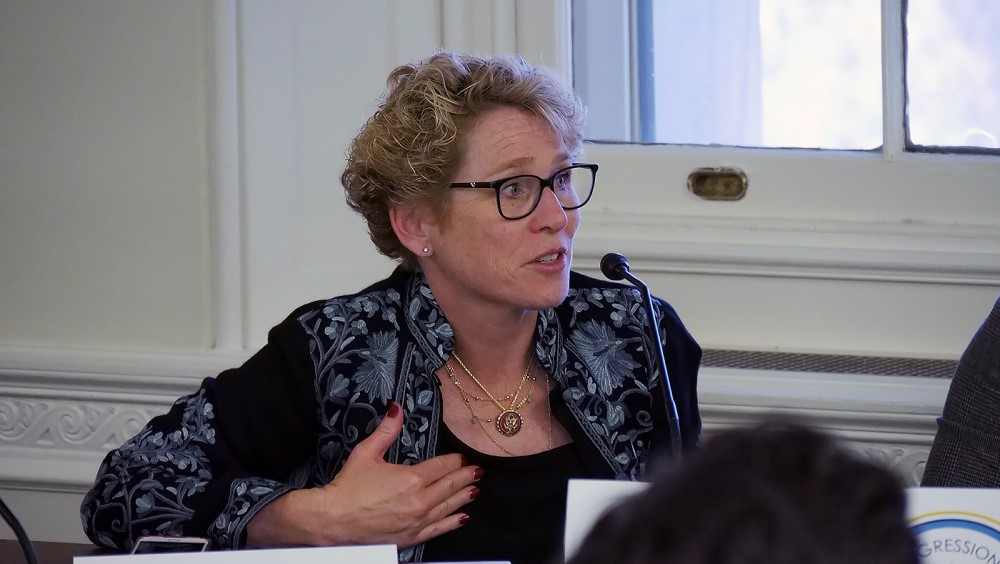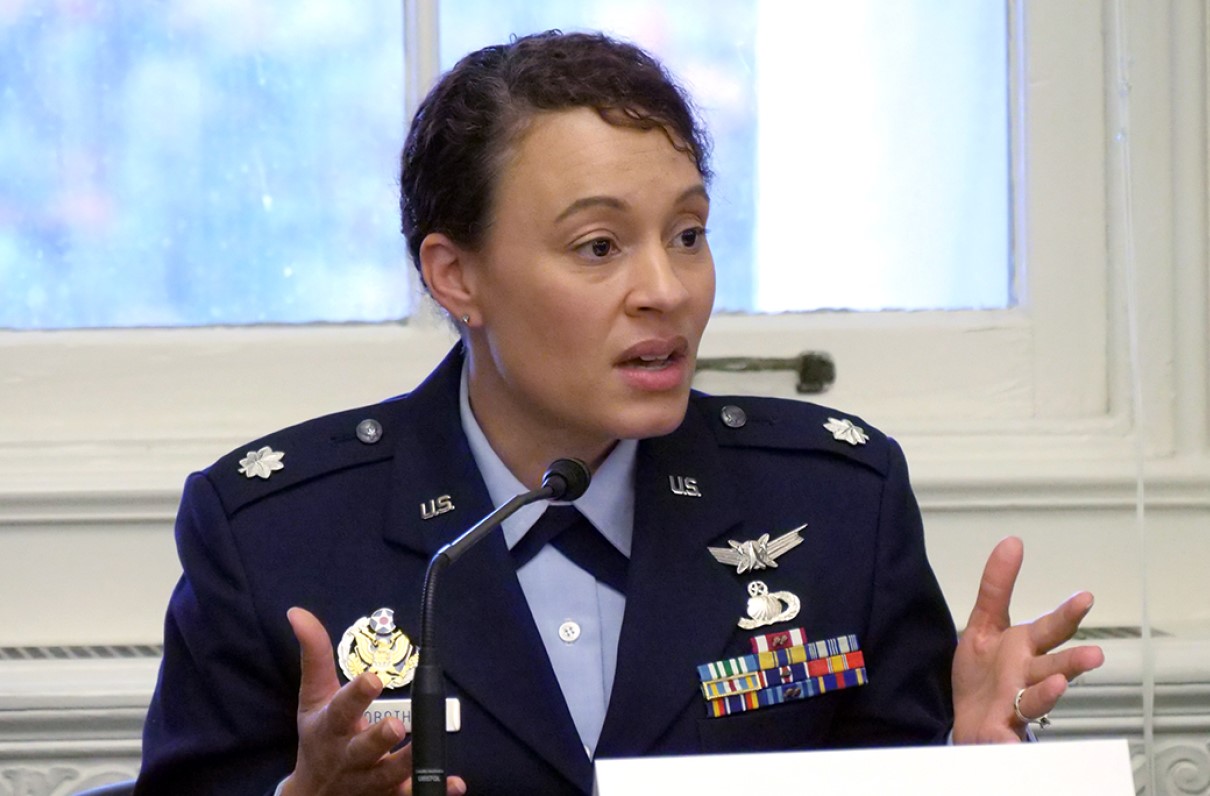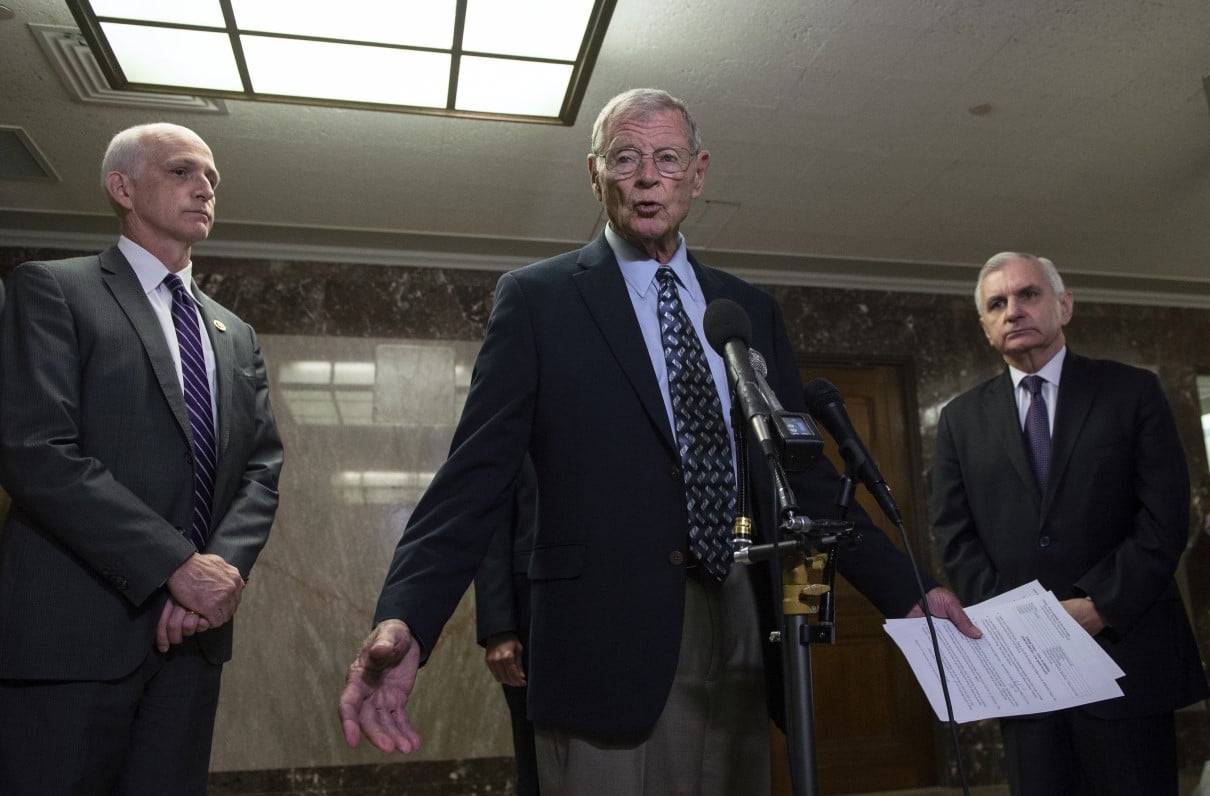While finding affordable child care persists as a nationwide issue, it is compounded for military families by the requirements of service – frequent moves, deployments, nontraditional work hours, and so on. This issue particularly hits home for Rep. Chrissy Houlahan (D-Pa.), who recently hosted a congressional briefing on this issue along with the Servicewomen and Women Veterans Caucus.
“One of the reasons I separated from the Air Force was a lack of affordable child care,” Houlahan said. “Nearly three decades later, many military families still face the same challenges. That’s why I’m fighting to eliminate child care deserts and provide affordable childcare for all our service families.
“We held a briefing to address this issue and identify our next steps. I’m proud to partner with my colleagues from both sides of the aisle and with advocacy organizations to forge a path forward for our military families and provide affordable, quality, and accessible childcare.”
Availability of Child Care
The briefing highlighted past research conducted by experts at the Congressional Research Service and the RAND Corp. As the largest employee-sponsored child care program in the United States, DoD child care programs have consistently been applauded for their high standards and affordability compared with those in the private sector. Research shows many families are happy with the quality of child care provided by the military, but they emphasize the need for more of it. Collectively, there are approximately 17,200 families on waitlists for military child care programs.
Availability concerns of both DoD and community child care were highlighted by a panel of servicewomen invited to speak to their experiences, including MOAA board member Lt. Col. Rojan Robotham, USAF.
Waitlists only cover one aspect of availability. Many servicemembers work hours outside of the traditional operating hours of child care facilities. Robotham, who has three kids and a spouse who is employed full time, said that she agrees with many military families who say the care programs are great but don’t meet the work requirements of today’s all-volunteer force.

Rep. Chrissy Houlahan (D-Pa.) speaks during a recent briefing on military child care hosted by the Servicewomen and Women Veterans Caucus. (Photo by Robert Lennox/MOAA)
"To me, this is a retention issue.” Robotham said, “When parents have to work shift work, weekends and long hours and cannot find child care for their children, they leave the service. If we want a diverse workforce to include women with children, men and women who are single parents, or families with two working spouses, then the military needs to modernize its approach to child care."
The FY 18 National Defense Authorization Act (NDAA) included a provision to require the services to reconsider hours of operation for child care development centers to match the time requirements of duty. As yet, Fort Jackson, S.C., is the only Army installation that provides 24/7 day care.
[RELATED: MOAA Addresses Military Housing Issues at Readiness Summit]
Affordability of Child Care
Lt. Col. Kristin Beitz, USAF, emphasized how the high cost of care put a significant strain on the budget of her dual-military family. At one point, Beitz and her spouse both had to be available for duty 24 hours a day; without flexible child care options, they had no choice but to pay $34,000 a year for a nanny to care for their two children.
While Beitz and her spouse were fortunate enough to bear this burden because of their ranks, she noted that it would have been an impossible expense for a single military parent or younger military couples. A lack of affordable and flexible child care options risks a talent loss for the military, Beitz said.
So, what can be done to mitigate these issues? MOAA believes there are three key areas worth exploring to improve child care for military families.
- Flexible Spending Accounts. This benefit would allow servicemembers to set aside pre-tax dollars from their paycheck to use for certain health care costs and dependent care. Every other federal agency provides FSAs as an employee benefit except for DoD, and while a 2007 DoD report recommended against the measure citing a perceived lack of member interest, rising costs since then may have changed that perspective. MOAA is actively pursuing passage of the bipartisan Jobs and Childcare for Military Families Act introduced by Sen. Tim Kaine (D-Va.) this year, which would mandate FSAs as a DOD benefit.
- Incentives for Child Care Providers. The FY 18 NDAA provided a direct-hire authority for DoD child care providers, allowing for a streamlined process that could help overcome the lack of credentialed providers and the cumbersome approval process they face. The services have also been working to address the need for providers: For example, the Army now allows military spouses to directly transfer to a Child and Youth Services position at another installation without having to start over the hiring process. MOAA urges DoD to consider similar incentives when supporting spouses who operate Family Child Care – a DoD-certified in-home care option. These spouses could receive housing preference and an easier process for transferring their FCC certification after a PCS move.
- Increased Awareness of Resources. Spouses who attend MOAA’s Keeping a Career on the Move Military Spouse Symposia, which visits installations around the world, often bring up child care issues as a barrier to spouse employment. Many of these spouses are unaware of fee subsidy programs such as Child Care Aware, and/or those offered via DoD’s Military OneSource portal. MOAA believes more needs to be done to connect with these spouses and to stay ahead of the generational curve with outreach to younger military families.



